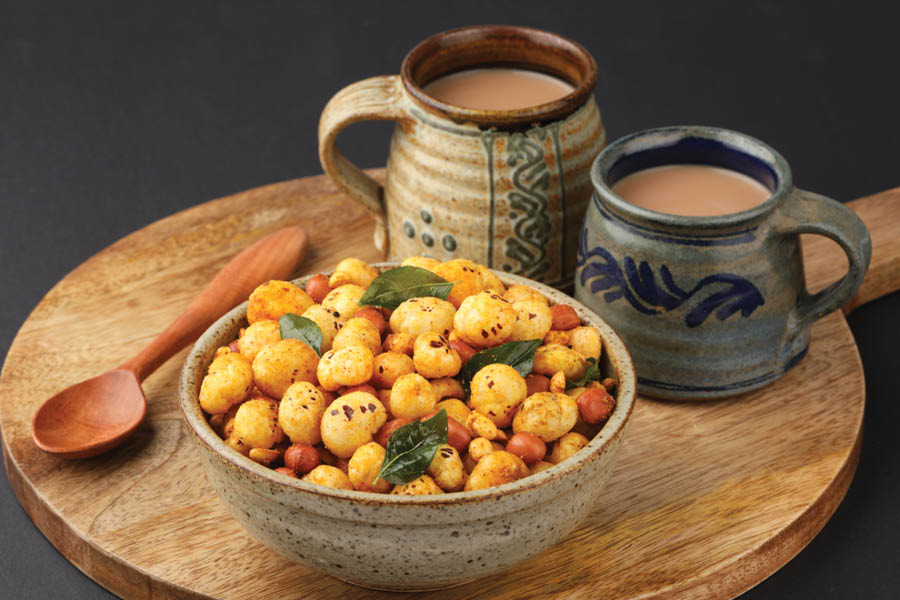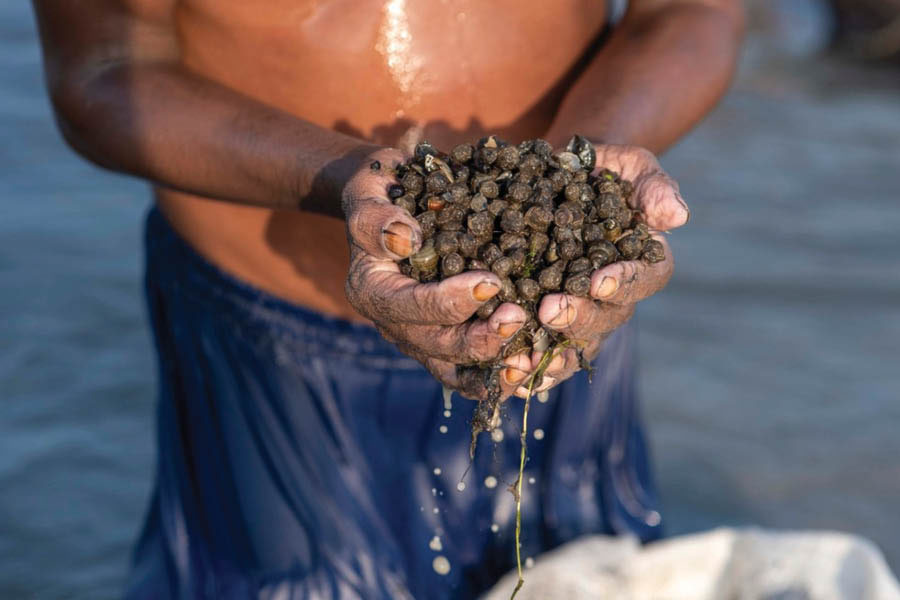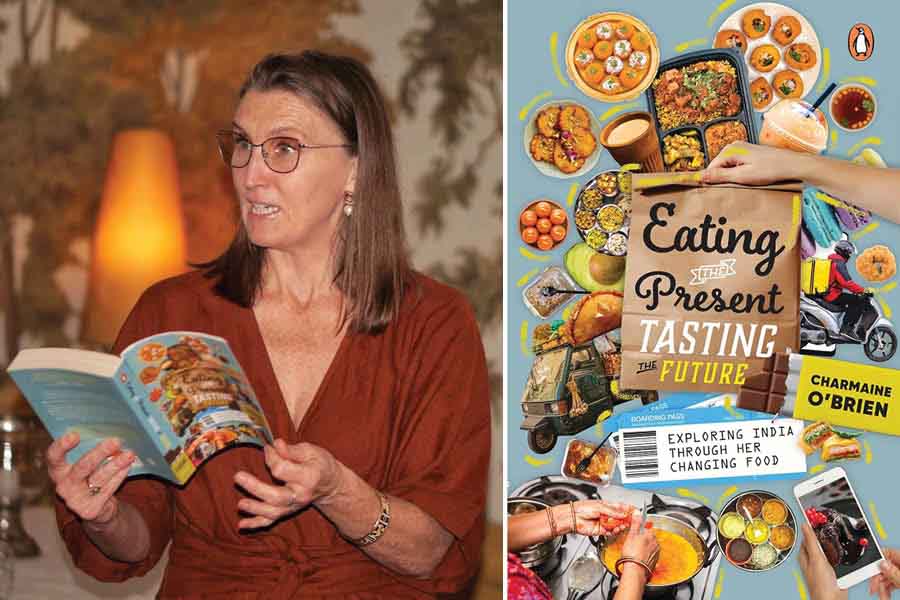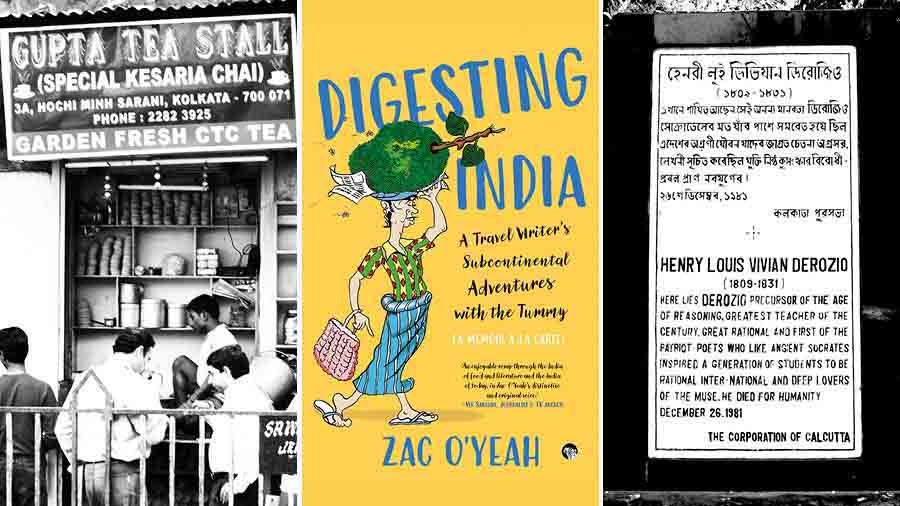Australian author Charmaine O’Brien’s newest book, Eating the Present, Tasting the Future is the result of three decades of a deep-dive into the food culture of India. From traditional dishes and eating habits to the emergence of food marketing and the packaging of superfoods, the author looks at how eating in India has evolved over the years. Much of the book comes from her experience of eating in people’s homes, said O’Brien in a recent event discussing her book for the Glenburn Culture Club at The Glenburn Penthouse.
An “obnoxious backpacker,” O’Brien arrived in India in 1995 when the country was opening up to globalisation, and has traced not only the variety in traditional Indian food but also the changing landscape of food in the country. From the regional diversity to the influence of western ideas and global trends, Eating the Present, Tasting the Future chronicles an array of topics.
An excerpt about superfoods from ‘Eating the Present, Tasting the Future’

Makhana or foxnuts are widely regarded as a superfood
Makhana is another traditional food that has recently been given the ‘superfood’ makeover. It requires great effort to harvest and process these seeds of the water lily Euryale ferox, and the men who dive into ponds to scoop these from the mud often suffer from skin and respiratory problems from doing this work. I was astounded and incensed when I came across this recent claim about the benefits of eating makhana on a leading Indian food website:
[Fox nuts] slows down the aging process. Flavonoids present in the fox nuts are also antioxidants. It fights the free radicals and slows down the process of aging. It improves your health. Consuming makhana will help inhibit the aging signs like wrinkles, fine lines and premature greying of hair. So, start eating fox nuts now.92
This is a nonsense piece of health washing. Nothing can slow the ageing process, it is the price of human existence, and I find the avocation to eat natural foods to fight ageing quite an irony when it is a natural process. Most disturbing in this was the suggestion that eating makhana can inhibit ageing signs ‘like wrinkles and fine lines’. This is not just rubbish, it is such a western concept, showing how urban India is taking on supposed ‘health’ concerns that they need not. From my observation, Indian skin ages very well, and Indians do not get the ‘fine lines’ westerners have become so obsessively worried about (interesting to note the use of ‘fox nuts’ as well as this is the western term for makhana). Yet again, this example shows why specific health claims for foods need to be questioned, and there is another moral judgment here: that the ageing process should be battled. If you like makhana, then include it in your diet. It is a nutritious food in the way all unprocessed plant foods are. But if it comes coated in artificial flavour and roasted in cheap oil, then it is little better than eating a packet of potato chips—potatoes, by the way, are also a nutritious food, a good source of Vitamin B6 and Vitamin C and have recently been magicked with the superfood wand in Australia. The increasing consumption of makhana by urban Indians is good for the rural farmers who produce it, on the assumption that it is increasing their incomes, and as it is a food that grows abundantly naturally, it might be a better choice for the environment. But demand for makhana from urbanites willing to pay more for it has the potential to distort the food system of the communities who rely on it. Already there have been problems with the encroachment of ponds and wetlands in Bihar where most of it is grown.93

The harvesting of foxnuts involves intense labour and over harvesting can pose a danger to wetland environments
92- Chethana Prakasan, 'Health Benefits of Makhana: 7 Amazing Benefits of Fox Nuts', India.com, 7 February 2018
93- Swathi Chaganty, 'First Food Authors on Food Habits in the Changing Dietary Landscape of India', Foodtank



